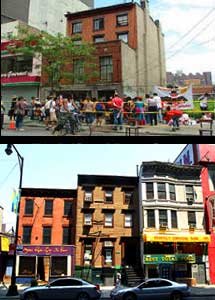Consulting firm AKRF worked for Forest City Ratner on the Atlantic Yards project before being hired by the state to perform the environmental assessment of the same project, according to documents.The AtlanticYardsReport.com then asks the ESDC what the policy is regarding conflict of interest and disclosure:Atlantic Yards opponents are calling the arrangement a conflict of interest, noting that the environmental assessment is a critical part of the public review process, when the project’s potential impacts on neighborhoods are assessed and the public is given the opportunity to voice concerns. Allee King Rosen & Fleming Inc, as AKRF was called when it was one of the first firms specializing in environmental assessments in the 1980s, is still among only a handful in the city capable of conducting full-scale reviews of projects in-house. The city and state hire AKRF for the bulk of their large development projects — including the Downtown Brooklyn rezoning and Brooklyn Bridge Park — but the firm also counts developers as clients.
“It’s reasonable to wonder if AKRF would jeopardize future contracts with [Ratner] if it were to find significant problems with [Ratner’s] flagship project,” said Jim Vogel of the Council of Brooklyn Neighborhoods.
It remains in question, however, whether the disclosure is sufficient to have confidence that AKRF's work would be in the public interest or in the interest of its former client.
I had asked the ESDC what its policy is; in other words, how "limited" must work be and what's a sufficient time gap? After all, Philip Habib & Associates was a subcontractor for AKRF on the environmental review and apparently did more work for Forest City Ratner; Habib was listed as a consultant in the developer's May 2005 bid for the Metropolitan Transportation Authority's Vanderbilt Yard.
It's also odd that the ESDC didn't see fit to issue any statement to me, given that I asked more than once for comment and gave the agency sufficient lead time.
Given that AKRF has a record of playing fast and loose with neutrality, this is just one more reason to question their impartiality on Duffield Street. Their recent report found that there was insufficient historical evidence at this time to prevent the Duffield Street Abolitionist homes from being destroyed in order to build a parking lot.
